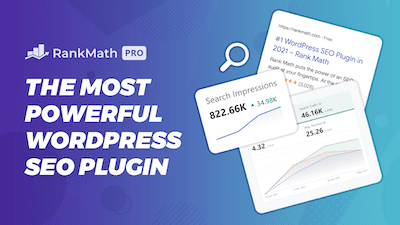Google AMP is an open-source project that aims to improve the performance of web pages on mobile devices by reducing page loading times. It does this by using a streamlined version of HTML and caching the page on Google’s servers. But is it any good?
Today, I want to talk about AMP. Accelerated mobile pages and whether they are good for website owners and SEO.
My thoughts on AMP pages
I initially hated them because I thought they were Google’s way of forcing web developers and designers to adopt this completely new stripped stylesheet. It’s like you couldn’t do anything. You can’t run any JavaScript, and you can’t run any ads.
Who wants to do that? No one. No one wants that. You know, it’s to improve the user experience. But is it because every website is going to be the same? And it was for a while. I remember seeing that every AMP page or template was the same. Then a few months later, we started seeing different layouts for AMP pages, and they started looking similar to the everyday mobile experience of the page, just a little faster. So that’s not so bad.
And the company that I’m working for is currently using AMP pages, which are really beautiful. They’re seamless. They’re super fast. And they still run ads.
Is google deprecating AMP pages?
So, at first, I was not too fond of this whole AMP thing because it seemed like Google was forcing you to accept this new way of doing things. For example, in Google News, if I remember correctly, only AMP pages were eligible for Discovery News.
But now they’re removing the icons. So it seems like Google’s taking a big step back from what they initially wanted to do, which, in my opinion, forced everyone to use this new, very lightweight framework for building their websites.
Another qualm I guess I have with AMP is its two different websites. If you’re on WordPress, you have your own website, but you also have an AMP website. If you use WordPress, you know what I’m talking about. You have your AMP saying in your AMP theme. So it’s kind of like two different things.
I’m not using any AMP pages for my blogs because I already have them stripped down. They’re stupid fast. I got 100% in GTmetrics and 100% in Google Page Speed Insights. That’s freaking fast. So no AMP is required.
And it’d be such a bummer if Google said, “Hey, if you don’t have an AMP page, you can’t show on Google,” because, again, what if you have a really fast-loading site, but you don’t want to use their AMP stuff?”
Are you a visual learner? Check out my video below, titled “My Thoughts on Google AMP Pages Accelerated Mobile Pages | SEO Rant,” from my YouTube channel, as I show you all this firsthand.
Frequently asked questions (FAQ)
Do you still have questions? Below are some of the most commonly asked questions about making a WordPress website.
What is Google AMP?
Google AMP is an open-source project that aims to improve the performance of web pages on mobile devices by reducing page loading times. It does this by using a streamlined version of HTML and caching the page on Google’s servers.
How does Google AMP work?
Google AMP works by using a specific version of HTML called AMP HTML, which is designed to be lightweight and fast-loading. AMP HTML pages also use a JavaScript library called AMP JS, which helps to ensure that the page loads quickly and efficiently. Additionally, Google AMP pages are cached on Google’s servers, which means that they can be served to users more quickly than non-AMP pages.
What are the benefits of using Google AMP?
Because AMP pages are designed to be lightweight and fast-loading, they tend to load much faster than non-AMP pages, particularly on mobile devices. And faster loading times can lead to a better user experience, as users are more likely to stay on a page that loads quickly.
Conclusion
Okay, so that concludes this article. What do you think? Let me know in the comments below (I read and reply to every comment). If you found this helpful, check out my full blog and subscribe to my YouTube channel. Thanks for reading!








